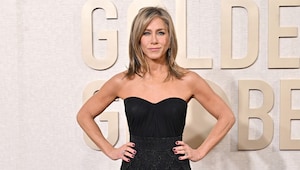Why does the internet get so uncomfortable when women lose weight?
From Adele to Sara Ali Khan, female celebrities who shed pounds often face backlash—exposing society’s fraught relationship with women, bodies, and change.

In the age of social media, a woman’s body is never entirely her own; it belongs to headlines, hashtags, hot takes, and the court of public opinion. Whether she gains weight or loses it, she becomes a trending topic—less person, more projection. And no matter the direction of change, there’s always someone ready to be offended by it.
When celebrities like Adele, Rebel Wilson, or, closer to home, Bhumi Pednekar or Sara Ali Khan lose weight, the backlash almost writes itself. First comes the applause—glossy covers, viral posts, and heartfelt comments. But then the tone shifts, almost immediately. "She sold out. She betrayed body positivity."
But this critique, though seemingly progressive, is still rooted in the age-old problem: reducing women to the shape of their bodies. It’s as if their bodies were never really theirs, to begin with—but a shared symbol, something to be owned and discussed by everyone else.
Take Bhumi Pednekar, for instance. She made her debut with Dum Laga Ke Haisha, playing a plus-size woman with remarkable ease and quiet confidence. But after she chose to adopt a fitter frame, the whispers began, questioning her authenticity. Was she no longer relatable? Had she caved to the pressure? Sara Ali Khan’s journey, too, has been dissected endlessly, with people swinging between admiration for her transformation and concern over the pressures that led her there.
Adele’s post on Instagram unveiling her transformation made global headlines, but it also received backlash from fans who lamented it as the “loss” of a plus-size icon. Elsewhere, Rebel Wilson’s “Year of Health” sparked similar reactions. The message these women receive is loud but confusing: We love you, but only when you make us feel better about ourselves.
These reactions expose an uncomfortable truth. While we are all about empowerment and body positivity, we’re still anchoring a woman’s worth to her body, just in new, seemingly well-meaning ways. The language has changed, of course, it's less fat-shaming, more ‘concern’ and ‘disappointment’, but the underlying issue remains: women are punished for not staying the same.
The expectation now is not just to look a certain way but to stay a certain way, to represent a community, a cause, or an image forever frozen in time. But real bodies don’t freeze in time. They fluctuate. They evolve. And they do so for reasons we may never see—health scares, heartbreaks, hormonal changes, burnout, or sometimes just the desire to feel different.
But social media rarely grants women this nuance. Instead, the transformation becomes public property, sparking debates about authenticity, feminism, and the meaning of self-love. And here’s the kicker: many of these so-called progressive critiques still reduce women to the same thing we were trying to move away from—the shape of their bodies.
Here's the thing, true body positivity was never about celebrating one body type over another. It was about giving people—especially women in the public eye—the freedom to evolve without turning every physical change into a referendum on their worth. After all, weight loss isn’t a betrayal; it’s life. And the kindest thing we can do is allow women—whether they’re Bhumi Pednekar, Sara Ali Khan, or the girl next door—to live in their bodies without commentary, judgment, and the exhausting expectation to stand still.
Lead image: Getty Images
Also read: Cherry cola lips, daddy issues, and the truth behind the Lana Del Rey Effect
Also read: #BodyTalkWithCosmo: Why gaining (or losing) three kilos a month is totally normal
more from Celebrity

Shanaya's dark romance

From courts to catwalks—the wild backstories of the world’s most iconic sneakers

“All eyes on the midriff” should have been the only instruction given at the 2026 Grammy’s

Sip, flirt, repeat: Inside New Delhi’s most discreetly delicious cocktail bar

Is 'Bridgerton' season 4 saving its juiciest drama for Part 2?

The rise of ‘I want it all’ culture and why Gen Z means it differently

The rise of Brotox: Memes about male celebs looking *different* are rife - what's really going on?

Can “friendfluence” save dating?

These five chic haircuts make thin hair look thicker and fuller

Stop posting about your shitty boyfriend (unless you’re gonna dump him)
